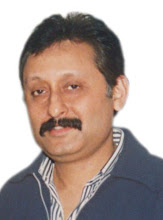In
Bradman’s penultimate Test series against India Australia
Not
surprisingly for a small man, Harvey Harvey
Doubtlessly
a joy to behold, Harvey
So
abundantly talented was he, that he scored a century in his first club match,
first outing for Victoria and second Test, a
brilliant 153 at Melbourne Harvey got his
chance only in the fourth Test at Leeds after
Sidney Barnes dropped out due to injury. The youngster promptly hit up a
hundred on first appearance against England Australia Harvey
When
Frank “Typhoon” Tyson decimated Australia
in 1954-55, Harvey Brisbane
The
tour to the Caribbean islands that followed
would then have been a big relief. Harvey scored
650 runs at an average of 108.33, with 2 centuries and a double century as Australia continued their dominance of the West Indies .
Like Everton Weekes, Harvey was rarely at his best when facing England , barring the flying start in 1948 and the gutsy displays against Tyson. In 37 Tests over 15 years, he never scored more than one hundred in any of his eight series against the Old Enemy. As if to emphasise the point, Jim Laker handed him a pair in that famous Test at Old Trafford in 1956. Neil Harvey, nevertheless, was one of the most delightful left-handers the game has seen.
(Author Indra Vikram Singh can be contacted on email singh_iv@hotmail.com).


No comments:
Post a Comment